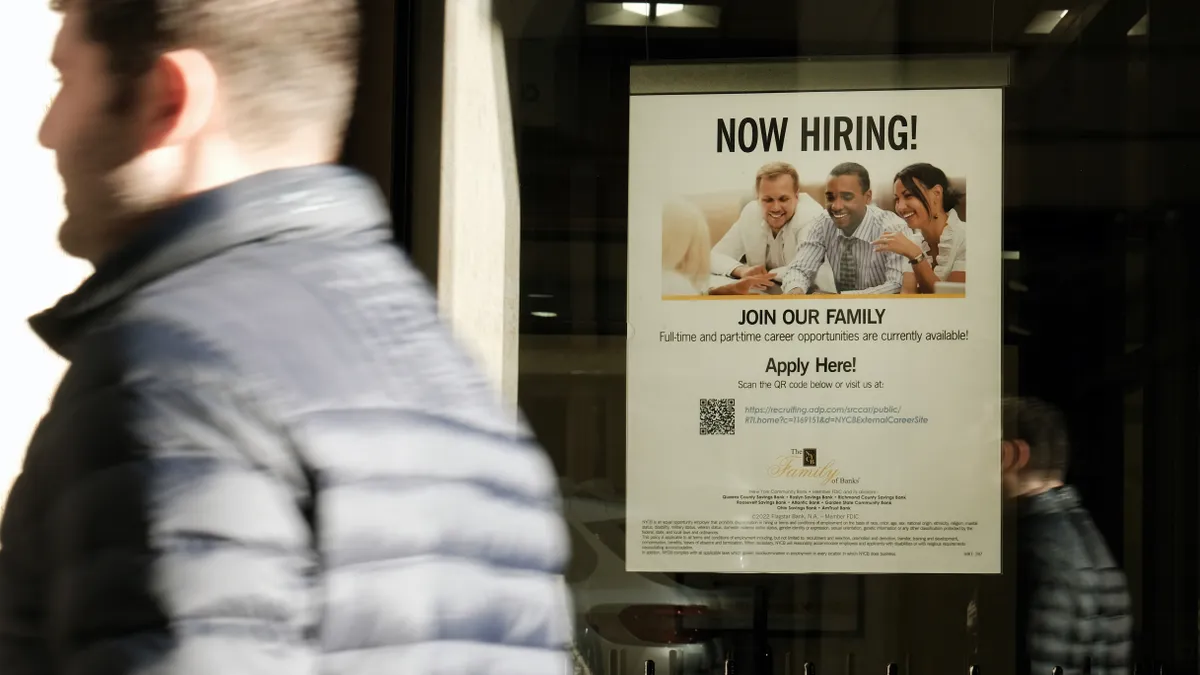A poor talent acquisition experience could hurt business. More than half of workers responding to a survey said they’re less likely to be a consumer of a brand after a bad job application or interview process, according to a Sept. 12 report from iCIMS, a talent cloud company.
For a superb experience, both internal and external job seekers want a seamless and personalized application and hiring process in a reasonable timeframe.
“Providing a great experience for your internal and external job candidates is no longer a ‘nice to have’ — today it affects the bottom line and is critical for businesses to get right,” Laura Coccaro, chief people officer for iCIMS, said in a statement.
“The data in this report can help talent acquisition leaders identify their strategic focus areas and continue to build a business case for making investments there,” Coccaro said.
Based on iCIMS platform data and a survey of 1,000 U.S. job seekers, 80% said status updates during the application process would improve their experience, as well as their perception of the employer. Conversely, respondents cited a lack of communication as one of the most frustrating aspects of the job application process.
As part of that, job candidates seemingly want personalized touch points. More than 40% described their last job search as frustrating and long. Instead, 72% say the job application process — spanning from application submission to an offer — should take three weeks or less. To reduce frustration and speed up the process, respondents asked for touch points such as relevant updates, recent news, employee videos and recommendations for open jobs based on their skills and work experience.
Job seekers also want companies to reach them where they are. Nearly half said they prefer to communicate by text, and 56% ranked phone calls at the bottom of their list. About 36% said they’d be more likely to click on an email from an employer with job roles that match their skills and experience.
Workers appear to be more receptive to using generative AI in the process, too. About 40% said they were open to the use of AI in the workplace, and 20% were more open to using it than they were six months ago. About 17% said they’ve used AI to write a resume or cover letter during the job search, which may open opportunities for recruiters to streamline their efforts as well.
Talent acquisition teams are more focused on candidate experience this year, according to a recent Talent Board survey, particularly with candidate resentment at a new high. Quicker hiring times and a better onboarding experience could help, those respondents said.
In fact, time-to-hire rates can impact business deliverables, influence candidate experience and affect current team burnout, sources told HR Dive. Recruiters should check their hiring process for bottlenecks with scheduling, assessments, the number of steps and people involved, and ease of communication among team members and with candidates.
Accountability and integrity matter to job candidates, too. More than a third of job recruiters have lied about a job or the company during the hiring process, according to a recent Resume Builder survey, which could affect candidate experience. More than half of these recruiters said the new employee quit within a week or a few months after being hired and discovering they were deceived about job responsibilities, growth opportunities, benefits, culture and the company’s reputation.












